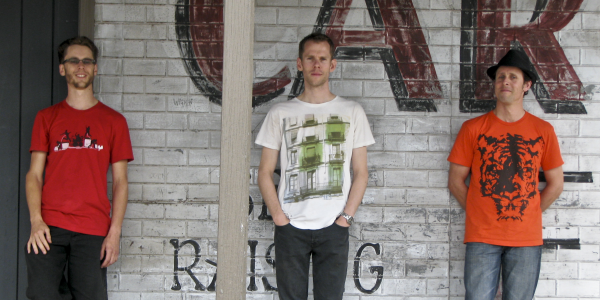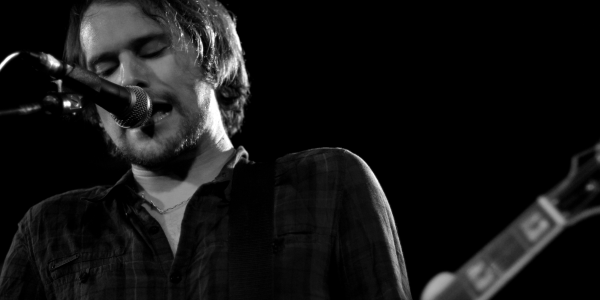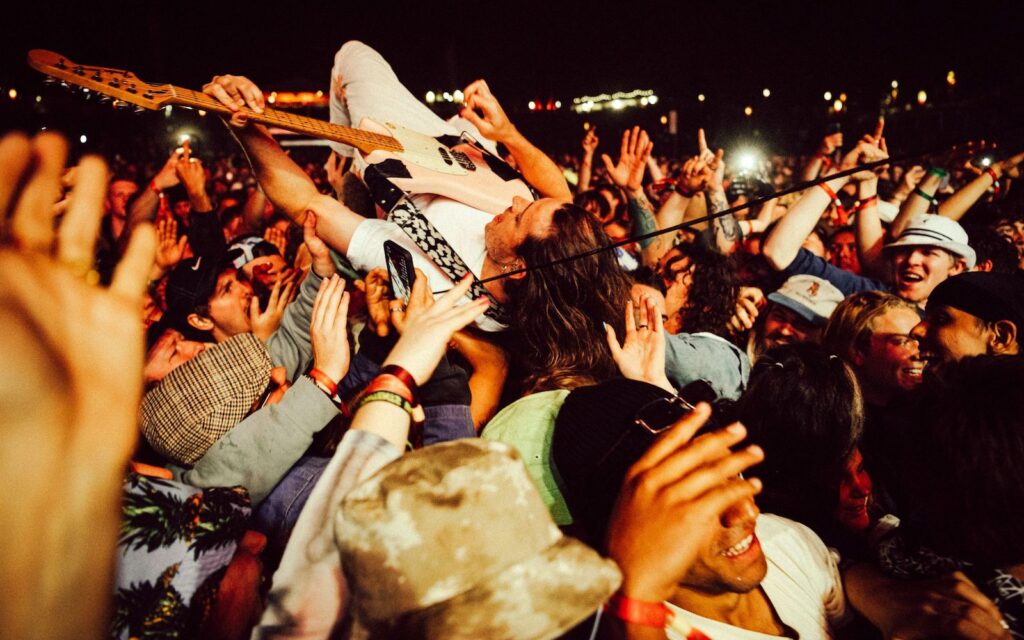The Germinate Project will become a little bit bigger than just a solar powered stage.
“ We turn sunshine into music,” laughs Euan Williamson, one half of the duo known as Creative Environment Enterprises. “That’s the crazy way of describing it, but that is kind of what it is. Sunshine goes in one end of the system and music and lights come out the other end.”
What exactly is he talking about? He’s talking about a mobile solar powered audio/visual production system. He’s talking about Creative Environment’s collaboration with a group of RMIT University undergraduate students and the end result: Germinate.
The RMIT ‘work integrated learning project’ typically requires final year undergraduate students to engage in some hands-on industry experience, and this year students from the School of Media and Communication and the School of Aerospace, Mechanical and Manufacturing Engineering joined forces with local Melbourne industry partner Creative Environment Enterprises to design and build a completely solar powered AV production system, or to put it simply, a stage.
“I’m keen to try and show wider society how the music industry can lead the way in innovative practices to do with sustainability and I applied to get some funding to kick off some sort of project around sustainability late last year,” explains Dr Barry Hill, RMIT lecturer in the Bachelor of Arts, Music Industry and the man in charge of the work integrated learning project. “I basically had the idea of trying to develop a project that looked at the idea of sustainability within the music industry and it was just a nice chain of events.
“A mutual friend introduced me to Creative Environment Enterprises and we just clicked, I thought that it was a really nice partnership,” he continues. “So what we have done is set up a project which is basically getting the students to form a production team.”
And a production team they have become. Allocated a tidy budget of $30,000, the students were in charge of researching, planning, designing and marketing the Germinate AV production system – and they’ve done so successfully.
“We just put the onus on the students to actually do it for real,” Hill says. “Doing a real world project like this meant that we could sit down with the students and go, ‘OK, we are not treating you like students. We are actually treating you like a production company,’ and they all reacted really well to it.
“Now, I don’t have to do that much in the way of the project,” he admits. “One of the students is project manager, we have a technology coordinator, and we have a marketing representative. They have all stepped up and gone into the roles. It’s actually really exciting now because they are all in the zone with it.”
Project manager, Mary Matthews is a key example here. The ‘work integrated learning project’ unit finished for her last semester, yet she has decided to remain avidly involved in Germinate. It is her first time in the project manager role and she is making the most of it. “I really wanted to be at the forefront of this and after reading things from the Creative Environment website I just thought ‘this is fantastic, I’ve got to get involved in this’,” she enthuses. “I’m really happy to be involved in it and I’m not just doing it because I have to. I think that it’s really important for the music industry and the environment. It’s something that needs to be done, and probably should have been done a while ago.
“It has all been a real learning curve for me,” she adds. “Just figuring out what it takes and what’s involved in actually doing something like this.”
Equipped with passionate students and numerous innovative ideas, there were no hassles in getting this project off the ground. But a certain question comes to mind: how does it all work? “Essentially, we are building a mobile renewable energy trailer which has solar panels on it and a large battery bank,” the second half of the Creative Environment team, Liam O’Keefe, relates. “We size the stage, the PA, the stage gear and the lights appropriately to the battery capacity and the solar capacity that we have for any given gig.
“It’s what they call remote energy power really. It’s using the solar panels to charge a large array of batteries and then just discharging it.”
“We’ve got a solar generator that stores the energy that’s generated from sunlight in the batteries and then we run that through a series of regulators and inverters to turn it into normal electricity,” his business partner, Williamson chimes in.
Despite being completely solar powered, the Germinate stage is capable of matching current industry standards in sound reinforcement and lighting design. What’s more, O’Keefe assures that it can successfully power a standard festival or gig for a couple of days. “The capacity is really dependent upon what type of gig you have, it’s what you want to do with it. But, generally you could have a standard 5k system for a couple of days with a full band on it,” he states. “So your average stage, your average festival, we could play for a few days.”
Sounds impressive. Yet unfortunately, the innovative technology does not come without its skeptics. “People are like ‘oh it’s a solar-powered system, what if there’s no sun?’” O’Keefe notes, with a hint of annoyance in his voice. “Well, regardless of the solar power on the day, we have enough power to run what we’re going to be plugging in for the duration of the event. We calculate that prior to the day.
“And as far as the artist is concerned, they won’t notice any difference,” he continues. “The only difference they will notice is the fact that there’s no diesel generator buzzing along noisily in the background. Acoustic artists or artists that like to have kind of ebbs and flows in their set; it’s actually beneficial for them because there’s no generator noise. It’s quiet; it’s just the band, just the music.”
It’s quiet, efficient and good for the environment. Sounds good. Now it’s just the small matter of making people pay attention. “A lot of people think sustainability is just something you do in your house, but it’s not that boring,” he contends. “I think what this is about is saying that sustainability is about everything, it’s about all aspects of our lives. It is about things like changing light-globes, but it’s also about having a good time, having a beer and going out with your friends.
“I think this just puts sustainability in that context and says that it doesn’t have to be boring, it doesn’t have to be all about numbers and greenhouse gases. It’s about having a good time as well, but just doing it differently.”
And in an attempt to get people’s attention, the Germinate stage will be launched at the first ever festival of Melbourne Music. The event will be a live performance gig featuring some of Melbourne’s up-and-coming musical talent: The Evening Birds, The Hazelman Brothers and Shelley Segal. “I think festivals are so big in how they consume and it’s such a good idea to be environmentally conscious,” Lucy Wilson from The Evening Birds says of the upcoming launch.
“I just didn’t think that you would be able to do something like this, not to this degree,” her musical partner Nick Grammaticos adds. “But I think it should be welcomed into the community with open arms.
“Hopefully it is going to kick off, this is just going to be the start, the first of many events that this project will do,” contends Hill. “Hopefully The Germinate Project will become a little bit bigger than just a solar powered stage. I hope to see it as some sort of community engagement tool, getting RMIT and other people involved in researching cutting edge technology and how that can be used within the music industry to increase efficiency, increase the green footprint and just do things in a much more environmentally sustainable manner.”







